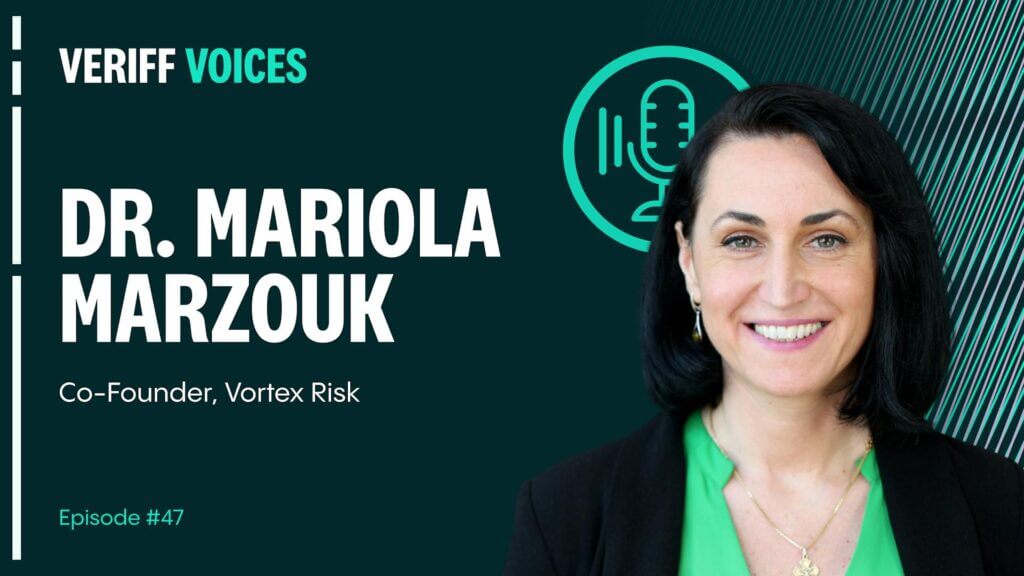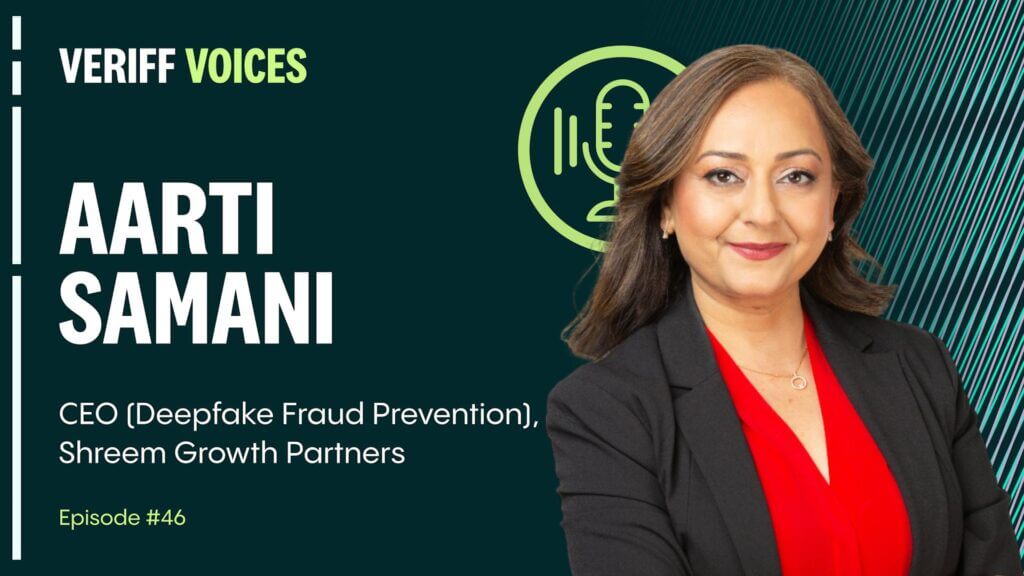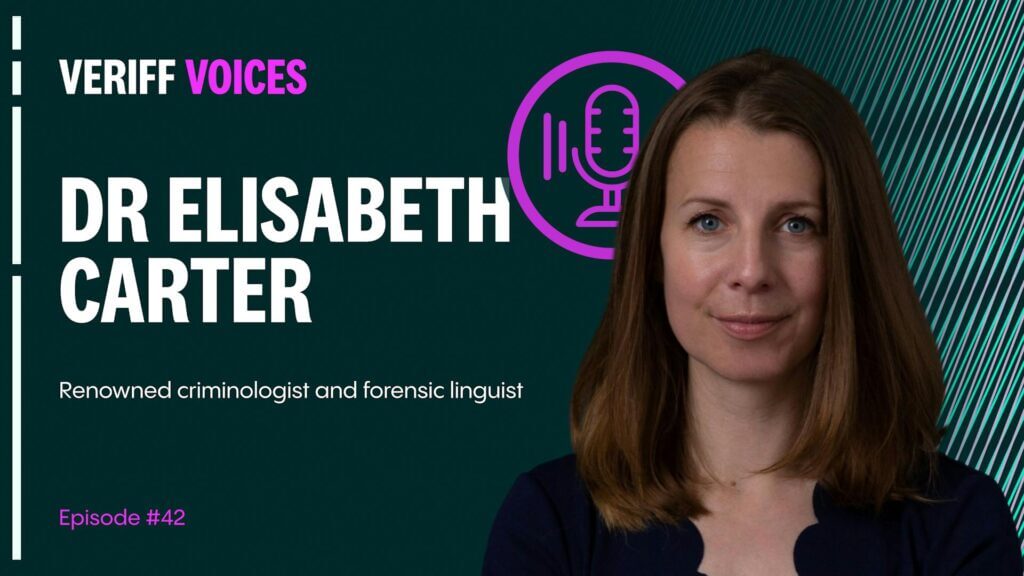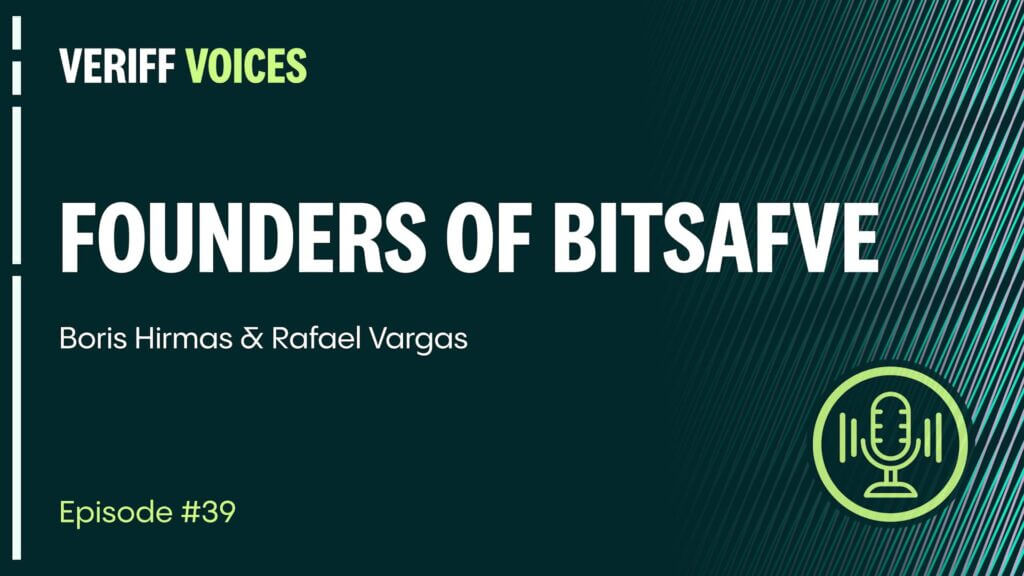Podcast
Veriff’s digital identity guru on how to solve the future of digital identity for businesses and consumers
Before joining Veriff, Viktoria Ruubel led teams developing new products and business models at some of the biggest names in tech. She explains how, under her guiding hand, Veriff plans to develop a future-proof solution for perhaps the biggest challenge in today’s internet-first world.
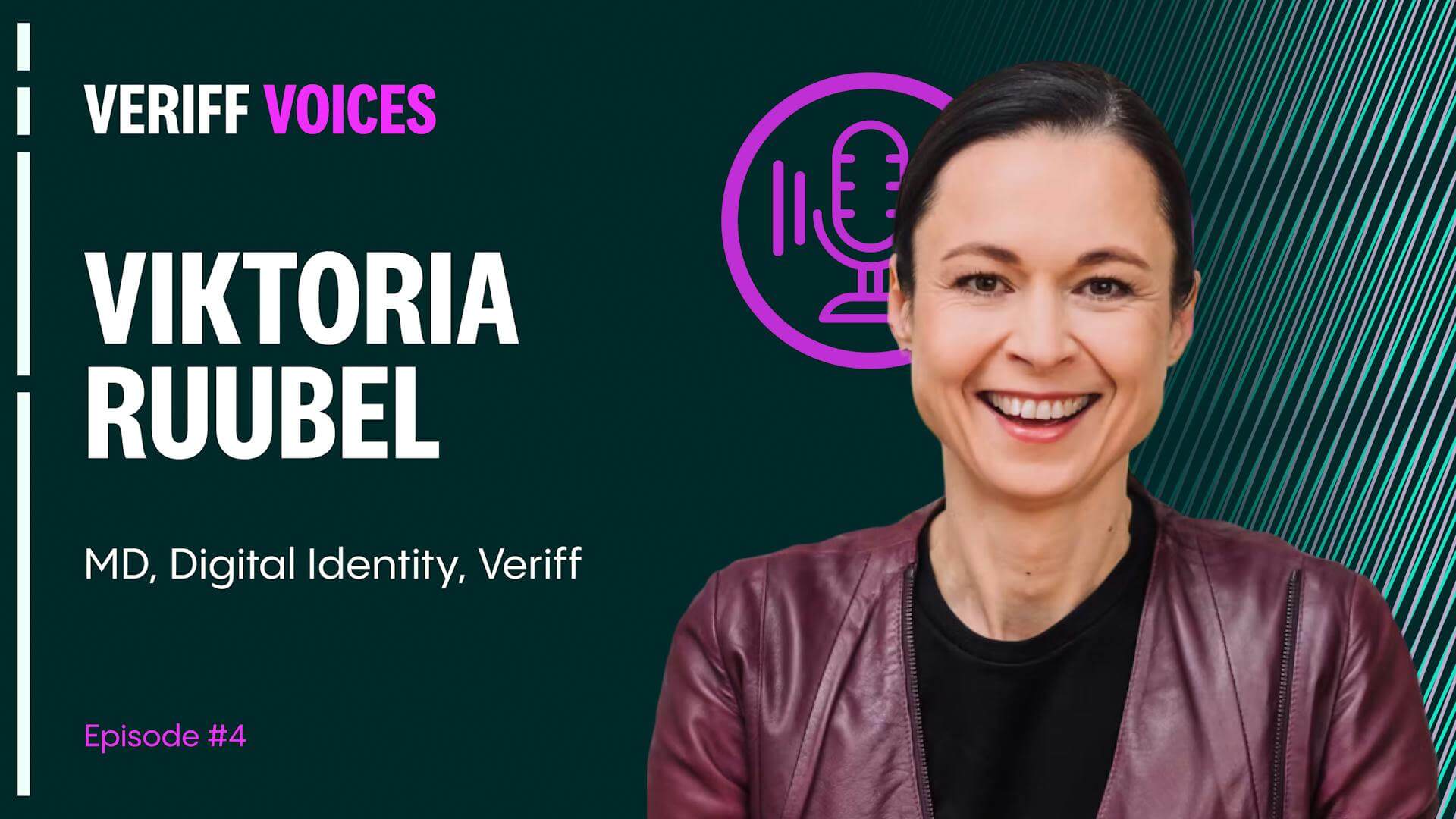
Listen to full conversation with Viktoria now!
Viktoria Ruubel joined Veriff in December 2022 to head up perhaps the most exciting initiative in the company’s history to date. Our Managing Director of Digital Identity is evangelical about both the importance of Veriff’s mission to bring trust to the internet and the key part digital identities have to play in accomplishing it.
“If you have that trust in the internet, the magic happens,” comments Viktoria. “I believe there’s magic in digital identities and that’s why I’m here, to bring that magic to life.”
Having helped deliver innovative products and services at companies including Skype, Intuit, Tide and Meta, Viktoria brings both the experience and the enthusiasm to make it happen.
What is a digital identity and why is it so important?
“Digital identity is a unique representation of an individual or organization in the digital world, simple as that,” says Viktoria.
In its most basic form, a digital identity comprises your name, your email and a password. However, as the world has moved increasingly online, our digital footprints have grown larger, and our digital identities more complex.
“In a nutshell, it’s how we represent ourselves online and how we use our credentials,” explains Viktoria. “Without digital identity we literally cannot access the digital world, we are almost invisible to certain services.”
The importance of digital identity has been highlighted in research by McKinsey, which found that extending full digital ID coverage could unlock economic value equivalent to up to 13% of GDP.

In a nutshell, it’s how we represent ourselves online and how we use our credentials […] Without digital identity we literally cannot access the digital world, we are almost invisible to certain services.
What about reusable identity, what’s that?
“A reusable identity foundationally needs a digital identity,” explains Viktoria, “but it’s how this digital identity is applied across multiple platforms and multiple use cases.”
Also sometimes called portable identity, the concept behind reusable identity is that rather than having to constantly enter and re-enter your credentials as you perform different tasks online, your digital identity will represent you across the web.
How is digital identity changing?
In their earliest form, digital identities were centralized, being managed and controlled by a single provider. Then, in the late 2000s, as social media platforms such as Facebook emerged and Google rose in popularity, the concept of single sign-on (SSO) came into play.
“We started to see these more user-centric digital identities,” comments Viktoria. “It was still managed by providers, so still centralized, but users had a bit more control of what kind of information they wanted to share.”
According to Viktoria, we are now entering the third era of digital identity evolution, characterized by decentralized, user-controlled digital ID – sometimes known as self-sovereign identities.
“This is when the individual becomes their own identity provider, explains Viktoria. “They own, control and manage the data, say when and how it can be used, and they can easily recall their data back.”
What are the benefits of reusable, user-centric identities for consumers and businesses?
Given that studies show the average person has around 100 online accounts, reusable identities can clearly save individuals a lot of time and stress. In their decentralized, user-centric form, reusable identities also provide individuals with far more control.
“I can see who has access to my digital data, who’s looked at it, why did they access my data, so I have a lot of transparency in that sense,” says Viktoria.
For companies, reusable digital identity reduces overheads for customer identification, while minimizing the risk of reputational damage and financial liability.
“It has more power to protect from fraud, because you understand the maturity of the identity, you understand who owns it,” explains Viktoria. “It really helps a company protect their customers from fraudulent transactions and account takeovers.”
It can also unlock rapid growth for businesses, both domestically and internationally.
“Wherever they want to grow, it’s just extremely easy, plug and play,” comments Viktoria.
What are Veriff’s plans to solve the problem of digital identity?
Having identified reusable digital identity as the solution to the growing problem of how to effectively manage our online lives, we have committed to perhaps our most ambitious project to date: the evolution of Veriff’s core product into a digital identity platform that will enable individuals and businesses to use a single digital identity across the web. While the project is still in its early stages, asked where she sees things in 12 months, Viktoria is characteristically confident.
“We have one very clear goal,” she smiles, “we want to launch an MVP.”
To hear Viktoria speak in more detail about digital identity, listen to our latest podcast. For further information about the development of Veriff’s digital identity platform, watch this space.
1. Digital identification: A key to inclusive growth’. Published by McKinsey Global Institute, April 17, 2019.
2. Study Reveals Average Person Has 100 Passwords’. Published by tech.co, March 21, 2023.

Veriff Voices
To hear Viktoria speak in more detail about digital identity, listen to the full podcast episode.




